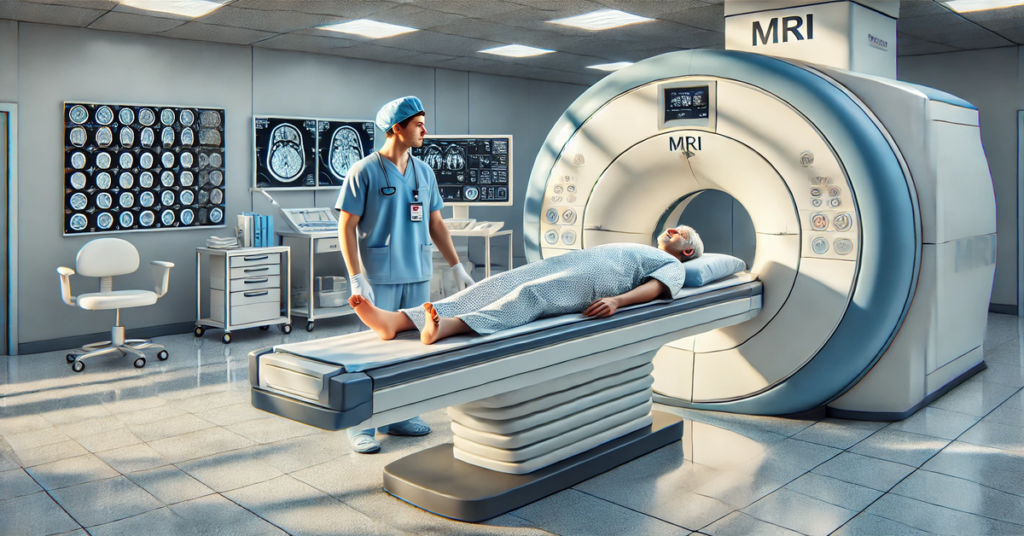Magnetic Resonance Imaging (mri tech) is one of the most advanced and non-invasive diagnostic tools used in the medical field. It provides detailed images of the internal structures of the body, including the brain, spine, joints, and soft tissues, without the use of radiation. MRI is a crucial technology in diagnosing various health conditions, ranging from neurological disorders to musculoskeletal injuries.
At the forefront of this technology are MRI Technicians, also known as MRI technologists or MRI techs. These professionals are responsible for operating MRI machines, ensuring high-quality imaging, patient safety, and comfort during procedures. As the demand for medical imaging increases, MRI techs play a pivotal role in delivering healthcare services.
In this article, we will explore the role, responsibilities, qualifications, salary expectations, career outlook, and more for MRI technicians. This comprehensive guide aims to provide an in-depth understanding of the MRI tech profession, the skills required, and the future opportunities in this growing field.
What Is an MRI Technician?
An MRI Technician is a healthcare professional who specializes in operating MRI machines to create detailed images of a patient’s internal body structures. These images are crucial for physicians to diagnose and treat a variety of medical conditions. MRI techs work closely with patients, ensuring they are properly prepared for the scan and monitoring them during the procedure to ensure their safety and comfort.
MRI techs are responsible for setting up MRI machines, operating them, positioning patients correctly, and ensuring the images are clear and precise. They also provide support to patients before, during, and after the MRI procedure, explaining the process, alleviating any concerns, and answering questions.
Key Responsibilities of an MRI Technician
- Operating MRI Machines: The primary responsibility of an MRI technician is to operate the MRI machine. This includes setting up the machine, choosing the appropriate scanning protocols, and adjusting settings to ensure high-quality images.
- Preparing Patients: MRI technicians prepare patients for the procedure by explaining the process, obtaining medical histories, and positioning them correctly in the MRI scanner. Proper positioning is crucial for obtaining clear images.
- Patient Safety and Comfort: MRI techs must ensure that patients are comfortable during the procedure. They provide reassurance, monitor patients for any discomfort or claustrophobia, and make adjustments to ensure their safety throughout the scan.
- Monitoring During the Procedure: MRI scans often take 30 minutes or longer, during which the technician must monitor the patient and the machine. Techs ensure that the procedure is proceeding smoothly and intervene if any issues arise.
- Maintaining Equipment: MRI techs are responsible for ensuring that the MRI machine is functioning correctly. This includes performing routine maintenance, troubleshooting, and cleaning the equipment.
- Reviewing Images: After the MRI scan is complete, the MRI tech reviews the images to ensure they meet the required standards. They may collaborate with radiologists to confirm that the images are of high quality and suitable for diagnosis.
- Documentation and Record-Keeping: MRI techs are responsible for documenting patient information, test results, and imaging reports accurately. This documentation is essential for patient care and future medical references.
- Following Safety Protocols: MRI techs must follow strict safety protocols to protect both patients and themselves from potential risks. This includes ensuring that patients with implanted medical devices like pacemakers are not exposed to the magnetic fields generated by MRI machines.
Common Types of MRI Scans and Their Uses
MRI technology is used for a wide range of diagnostic purposes. Some of the most common types of MRI scans and their uses include:
- Brain MRI: A brain MRI provides detailed images of the brain, helping to diagnose conditions such as tumors, strokes, multiple sclerosis, and brain injuries.
- Spinal MRI: This type of scan helps in diagnosing spinal cord injuries, herniated discs, tumors, or other abnormalities in the spine.
- Joint MRI: MRI is frequently used to examine joints such as the knees, shoulders, and hips to detect injuries, arthritis, or soft tissue damage.
- Cardiac MRI: A cardiac MRI is used to assess the heart’s structure and function. It is often used to evaluate heart diseases, congenital heart defects, or vascular conditions.
- Abdominal MRI: This scan helps in identifying conditions within the abdominal organs, including liver diseases, kidney problems, or gastrointestinal issues.
- Breast MRI: A breast MRI is commonly used to examine breast tissue, especially in patients with dense breast tissue or those at high risk for breast cancer.
Skills and Qualifications Required for MRI Technicians
Becoming an MRI technician requires a combination of technical, clinical, and interpersonal skills. Here are the key qualifications and skills required to succeed in this field:
Educational Requirements
- Associate’s Degree: Most MRI techs hold an associate’s degree in radiologic technology, medical imaging, or a related field. These programs typically last two years and include both classroom education and hands-on clinical training. Some programs offer specialized training in MRI technology.
- Certification: Certification is often required to work as an MRI tech. The American Registry of Radiologic Technologists (ARRT) offers certification in MRI technology. To obtain this certification, candidates must complete an accredited MRI training program and pass a certification exam.
- Licensing: Some states require MRI technicians to hold a state-issued license to practice. Licensing requirements vary by state, so it’s important to check local regulations.
- Continuing Education: MRI techs must complete continuing education courses to stay current with advancements in technology and maintain certification. This ensures that MRI technicians remain knowledgeable about new techniques and equipment.
Technical Skills
- MRI Machine Operation: An in-depth understanding of how MRI machines work is crucial. MRI techs need to know how to operate and adjust settings on the equipment to obtain clear images.
- Radiographic Imaging Knowledge: While MRI is distinct from X-ray or CT scans, having a strong foundation in radiographic imaging techniques is essential for understanding how MRI compares to other diagnostic tools.
- Computer Skills: MRI techs often work with computer systems to adjust scan parameters, store patient data, and review images. Proficiency with these systems is vital to the job.
- Attention to Detail: The precision required in MRI imaging means that MRI techs must have excellent attention to detail to ensure that the images captured are of the highest quality.
Soft Skills
- Patient Care: MRI technicians must be able to interact effectively with patients, offering reassurance and guidance. This is especially important when dealing with patients who may feel anxious or claustrophobic during the MRI procedure.
- Communication: Clear communication with both patients and healthcare professionals is key in ensuring that the MRI procedure goes smoothly and that the images meet medical requirements.
- Problem-Solving: MRI techs must be able to troubleshoot technical issues with equipment or imaging quality and solve problems quickly to keep the procedure on track.
- Physical Stamina: MRI techs often work long hours, standing or sitting for extended periods, and must be able to handle the physical demands of the job.
Salary and Job Outlook
The demand for MRI technicians is expected to grow steadily, reflecting the increasing need for medical imaging in the healthcare industry. According to the U.S. Bureau of Labor Statistics (BLS), the median annual wage for MRI technologists was $74,690 as of May 2020. The highest-paid MRI techs can earn upwards of $100,000 annually, especially in areas with a high demand for their services.
The job outlook for MRI techs is positive, with employment expected to grow by 7% from 2019 to 2029, which is faster than the average for all occupations. The growing need for diagnostic imaging, an aging population, and advancements in medical technology are expected to drive demand for MRI technicians.
Working Environment for MRI Technicians
MRI techs typically work in hospitals, imaging centers, outpatient clinics, or private practice settings. The working environment can be fast-paced, especially in busy hospitals where patients may need to be seen urgently. MRI techs may work irregular hours, including evenings, weekends, or on-call shifts, depending on the employer and the setting.
While MRI scans are non-invasive, the work environment can be physically demanding. Technicians often spend long hours on their feet, and the machinery can be loud, especially during scans. Additionally, MRI tech must ensure that the machines are maintained regularly to avoid downtime and ensure high-quality results.
Conclusion
MRI technicians are integral to the healthcare industry, providing essential diagnostic images that help physicians diagnose and treat a wide range of medical conditions. The role requires a combination of technical knowledge, patient care skills, and physical stamina. The demand for skilled MRI tech is expected to grow in the coming years, making this a promising career path for those interested in the medical and technology fields.
With the right qualifications, certification, and experience, MRI tech can enjoy a rewarding career with competitive pay and opportunities for career advancement. As the healthcare industry continues to evolve, MRI tech will remain at the forefront of diagnostic imaging, playing a vital role in improving patient care.
FAQs
- What does an MRI technician do?
- An MRI technician operates MRI machines to produce detailed images of patients’ internal structures, assisting doctors in diagnosing and treating medical conditions.
- How long does it take to become an MRI technician?
- Becoming an MRI technician typically requires completing a 2-year associate degree in radiologic technology or MRI technology, followed by certification and training.
- What certifications do MRI technicians need?
- MRI technicians often need to be certified by the American Registry of Radiologic Technologists (ARRT) and meet state licensing requirements where applicable.
- What is the average salary for an MRI technician?
- The median annual wage for MRI technicians was $74,690 in 2020, with higher salaries available for experienced or specialized professionals.
- Where do MRI technicians work?
- MRI technicians work in hospitals, outpatient clinics, imaging centers, and private practices. They may also work in research or academic settings.
- What are the job prospects for MRI technicians?
- Job prospects are positive, with the demand for MRI technicians expected to grow by 7% from 2019 to 2029 due to increasing healthcare needs and advancements in medical technology.







